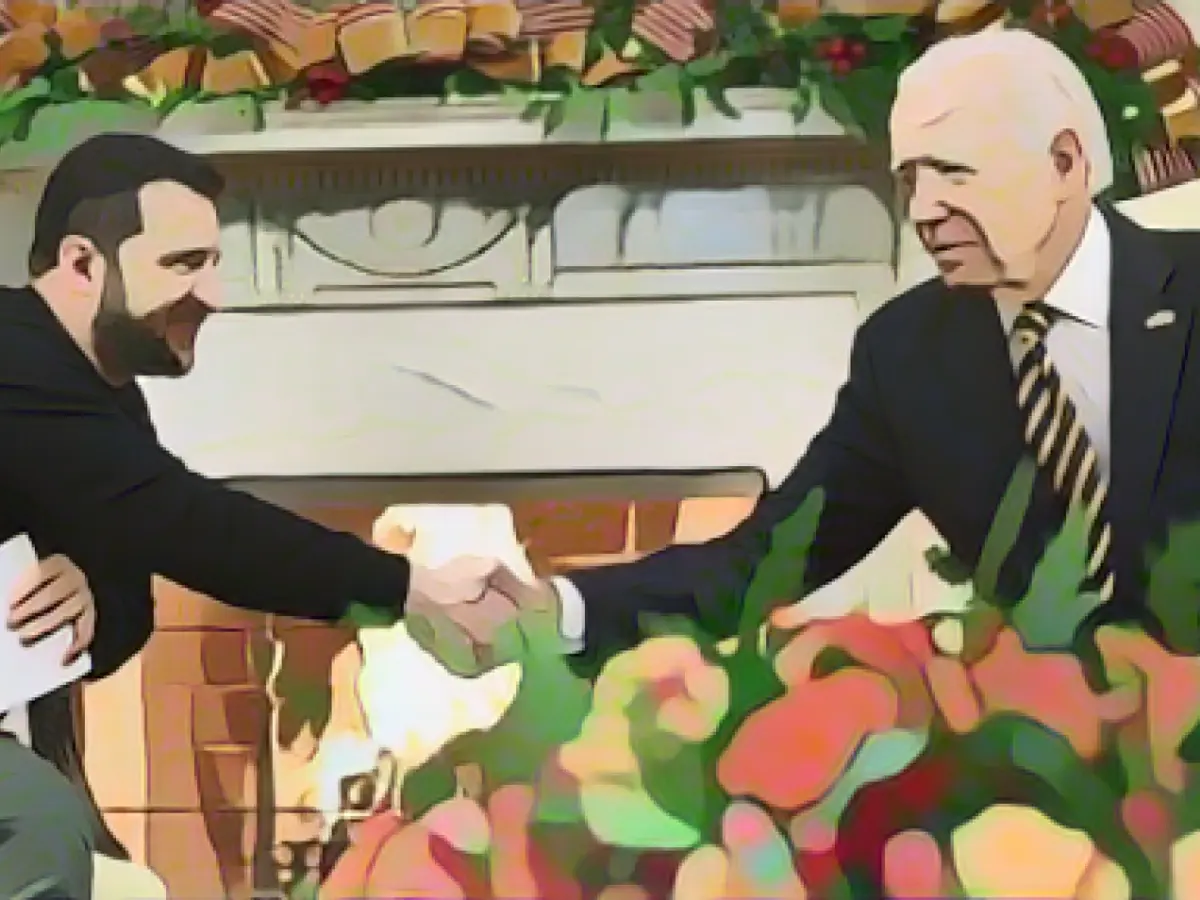Zelenskyy Strikes a Cautious Tone About New Aid During US Visit
During his meeting at the White House, President Zelenskyy expressed optimism but noted the importance of waiting for results before making definitive statements. Biden, for his part, pledged to stand by both Ukraine and the American people, emphasizing the potential consequences of Ukraine's victory against Russia on other potential aggressors.
kickstarting their discussion, Biden again urged Congress to release additional funds for Ukraine, warning against giving Putin a significant Christmas gift. Simultaneously, the U.S. government announced a new arms delivery valued at 200 million dollars (approximately 186 million euros). However, the funding for military aid for Ukraine is gradually diminishing, with Biden requesting 61 billion dollars from Congress in October. This proposal, unfortunately, faced rejection from the opposition Republicans.
The situation was further complicated by the Republican chairman of the House of Representatives, Mike Johnson, who voiced his concerns about Biden's aid request. Johnson expressed dissatisfaction with the lack of oversight, clear strategy, and transparency, arguing that the American people needed answers. Republicans also demanded additional concessions in relation to U.S. immigration policy and securing the border with Mexico to hinder new aid for Ukraine.
Ukraine experienced substantial support from the USA, which became its most significant ally in the war against Russian invasion forces. Since February 2022, the USA has supplied or promised military aid totaling more than 44 billion dollars to Ukraine. A potential U.S. default could have severe repercussions for Kiev. Consequently, Western allies are watching developments in Washington with concern, aiming to uphold their commitment to Ukraine.
Additionally, it's essential to consider the role of the American population in the political discussions surrounding Ukraine's aid and its future. This intricate situation reflects the intricate relationships between the USA, Ukraine, and Russia, as well as ongoing debates within U.S. politics.
further insights:
- Generational Divide and Party Politics:
- There's a significant generational split within the Republican Party regarding support for Ukraine aid. Older Republicans tend to back it, while younger ones are less inclined. This divide mirrors broader internal party dynamics and the influence of Trump's unconventional foreign policy approach.
- Recent Legislation:
- Despite the controversy, the Senate recently approved a national security supplemental providing 60 billion dollars in aid for Ukraine and 14 billion dollars for Israel. This legislation, supported by Biden and the majority of Democrats, was more contested among Republicans.
- Impact on Negotiations:
- The suspension of non-military support to Ukraine, part of a broader freeze on U.S. foreign aid, has been criticized for weakening Ukraine's negotiating position against Russia. This freeze adversely affected Ukraine's energy sector, traditionally aided by the U.S.
- Need for Continuous Support:
- Analysts believe that sustained U.S. support is essential for Ukraine's sovereignty and U.S. interests. Failing to maintain assistance could potentially result in a Ukrainian government collapse, which could strengthen Putin's hand and undermine U.S. objectives.
- Alternative Financing Mechanisms:
- There are proposals for alternatives to traditional aid financing, such as the REPO Act, which could utilize seized Russian assets to fund aid for Ukraine. Additionally, the Ukraine Democracy Defense Lend-Lease Act of 2022 could expedite delivery of essential weaponry and resources to Ukraine.
- Political Climate:
- The challenging political environment on Capitol Hill makes it difficult to secure additional funding. Some members perceive continued support as a misuse of taxpayer dollars, which contributes to the war's unpopularity in the U.S.








